From Mav: I was thinking about a conversation with my wife from a couple years back where she out of nowhere exclaimed to me that her favorite song from the movie Grease was in fact the song “Grease.” I was incredulous because … well, because no one’s favorite song from Grease is “Grease.” Well, except for Stephanie who for some reason seems to like that song best… but for me, it’s the absolute WORST song on the soundtrack. Mostly because it doesn’t fit. Grease is a movie that is completely held together by its soundtrack. That’s all there is to it. It’s really not a very good movie; it’s very hokey. But it works because the music creates a perfect mood for what it’s trying to do. It’s a weird fever dream of a magical 1950s born of the 1970s. Every single song seems perfect for every scene. It pushes the story along. It is the story… Well, except for that one song… which for some reason is very 70s. It feels out of place. I don’t know why my wife disagrees… but somehow against all odds, our relationship survived this travesty.
I want to talk about music in movies. Scores and soundtracks. Obviously, for musicals like Grease, music is sort of the point of the whole film. it is built to work like a stage musical. Hamilton, Cats, Les Mis, or whatever… the story is directly told through the songs. In cases like this, you almost don’t even need the visuals. You can just listen to the album and follow along. In fact, if you do so you’d probably get more of the story than you would if you watched the film (or play) and got the visuals but cut out the songs. Similarly, but not the same are musician biopics. You can probably follow along with something like Bohemian Rhapsody, or Rocketman without the music… but it would be a lot less fun. I know for instance, Wayne has pointed out that Bohemian Rhapsody has some “problems” with chronology as the band performs some songs in moments where historically they wouldn’t have been written yet. But it doesn’t matter. The music sets the tone for those movies. Same thing with fictional stories about musicians like Spinal Tap or Fear of a Black Hat. Purple Rain is built from the ground up around the music as much as Grease or frankly any other musical since Bohemian Rhapsody. Obviously this works because Prince did it himself, and Prince was a musical genius.
But I want to think about things beyond what we classically consider musical. How does the score of a film affect our enjoyment of it in general. The best examples I can think of are by John Williams. Star Wars doesn’t really work without his score. The change in musical cues every time Darth Vader is on screen tells you everything you need to know about the character. The score of Jaws, even more so. The music is a bigger part of what makes the film scary to this day… far more so than the legendarily really bad special FX that are Bruce the Shark. Jurassic Park does a similar thing. The base theme can me modified to evoke hopeful wonderment or downright terror depending on the needs of the scene. You know how to feel in that movie because the music tells you. What I’m saying is that John Williams is a musical genius.
And while not every movie has that kind of mastery behind the score or soundtrack, that bit of incidental music is still part of the language of film and really makes it come together. Sometimes it works better than others. For instance, I actually loved the movie Captain Marvel… BUT, I thought that it leaned a little too hard on the 90s needledrop moments with the soundtrack. I actually think the “Just a Girl” scene towards the end is shot great, and I like the music it uses… BUT by the time you get to it, there’d been so many “Carol jams out to yet another 90s pop hit that just happens to be about girls” moments that it kind of loses something. An even more egregious version is Suicide Squad. The whole movie is basically an extended music video (seriously the first 5 minutes are musically exhausting) poorly pasted together and it when we get to a point where the catchy pop music should matter no one cares anymore and it just seems cheesy.
That’s not to say that pop music can’t work to set a scene. Tito & Tarantla’s “White Train” is perfect matching of music to action for the scene where it is used in Desperado. “Somewhere Over the Rainbow” is used perfectly to tell a story about how good a father Archer is in Face/Off. Even for films that intentionally overdo everything, this can work. I’ve said on the show before that I actually LIKE Sucker Punch even though I know it’s a bad movie, but what makes it work is how well the music really sets every single scene of the film. A better example is maybe Baby Driver because it does the same thing, but is actually a GOOD movie! Oh, and also Kill Bill (frankly, all Tarantino movies… But especially Kill Bill…). What I’m saying here is that Los Lobos, Zimmer/Powell, Edgar Wright and the RZA… also musical geniuses.
I used a lot of action movie examples here because I think they’re easy to recognize and really drive the point home. But It’s maybe even more important in less chaotic films where you really need to subtly set a mood. Especially with love scenes. I’m thinking here of the “Unchained Melody” scene in Ghost here, or maybe for a non-diegetic version (and we’re definitely going to need to talk about diegetic vs. non-diegetic music on the show….basically the difference between music that the characters in the film can hear, and music that only the audience hears, but there’s more to it than that and how you use one vs another.), the “Take My Breath Away” scene in Top Gun. In the span of three minutes we have a lecture, an argument, a high speed chase, and sex… and the song sort of walks you through it and makes it work and tells you everything you need to know about the characters involved. Or… in one that is really really damn subtle… pretty much the entire score to The Social Network. That movie works from moment to moment because of subtle musical cues… and the lack thereof as appropriate. Basically what I’m saying here… Trent Reznor… yep… musical genius.
Part of me says that people don’t think about these things initially. On the other hand, who amongst us doesn’t know that the way to win the heart of the girl you like is to stand outside of her window with a boom box over your head blasting Peter Gabriel? And that movie came out thirty years ago! I bet most people who know the reference haven’t even seen the entire film… and if they do, a lot probably don’t even really remember what it was about other than that one scene. And that scene is brilliant because literally NOTHING happens in it. It’s a couple minutes of Ione Skye laying in a bed and John Cusack standing completely still. They don’t interact. Neither speaks. The music does the acting.
So that’s what I want to talk about. What makes music work and not work in a movie? What are the best and worst examples you can think of? How does it shape your experience? Ae you actively aware of it or do you mostly ignore it? Can it change a film for you, or even save an otherwise bad film? Can it ruin an otherwise good film? Are there films that stand out in your head specifically because of the music they used good or bad? Does it ever eclipse the film itself? What else do we need to talk about. What are your thoughts?

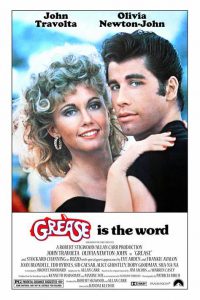
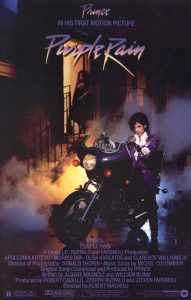
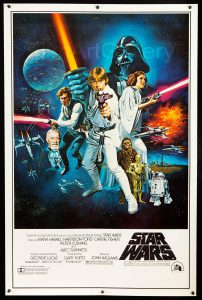

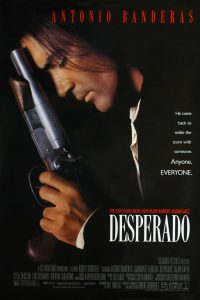

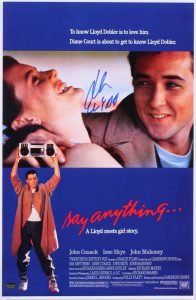



@chrismaverick Proper film scores & song use channel the emotion & energy of the story, allowing the… https://t.co/YNTlQYoGpQ
Proper film scores & song use channel the emotion & energy of the story, allowing the audience to recollect their theater experience again & again through music. When it works, it can establish an audio mythology that endures, linking sequels & spinoffs together via cues.
A strong soundtrack definitely improves a movie. It lends to the emotion, tension, environment, character. The trumpet fanfare of Star Wars is easy to point out. But if you notice in some of the more recent Star Wars movies, the music doesn’t fit right. Why is Imperial music playing when the Millennium Falcon returns to the air?
The MCU movies lack dynamism with their music. And they lack identifying sound for the different heroes.
“Who wants to live forever” flowing through The Highlander interspersed with power guitar lends to the emotional and sentimental story of McLeod.
Some music becomes anthemic or iconic. Rocky. The Godfather. Bridge on the River Kwai.
Others set a mood or tone. The metallic complex rhythm clang of the main theme creates a futuristic robotic setting for Terminator.
And some is strategic song choice. Lloyd Dobbler holding a boom box over his heard in the rain would have a different impact if the song were “let’s stay together” by Al Green
Directors with good usage of music: Danny Boyle (Trainspotting), F.F. Coppola (Apocalypse Now and others), Sofia Coppola, Orson Welles (Peter Bogdanovich used Welles’ tricks from Touch of Evil in Last Picture Show), Edgar Wright (previously mentioned, but the fight scene in Antman!) and Michael Mann. There are many many examples of bad music usage so I won’t go there.